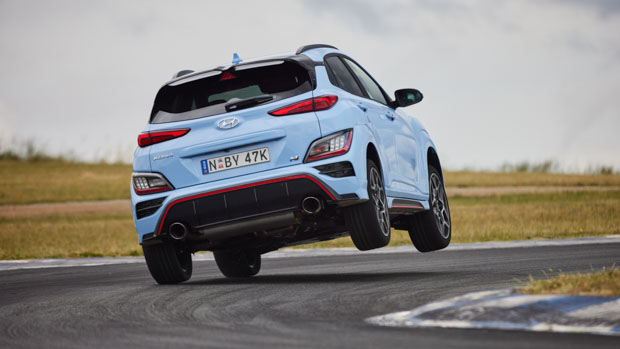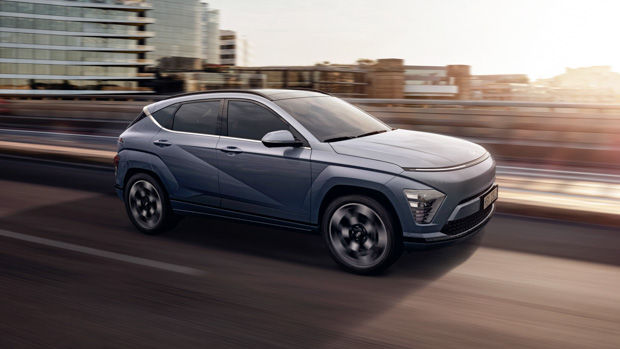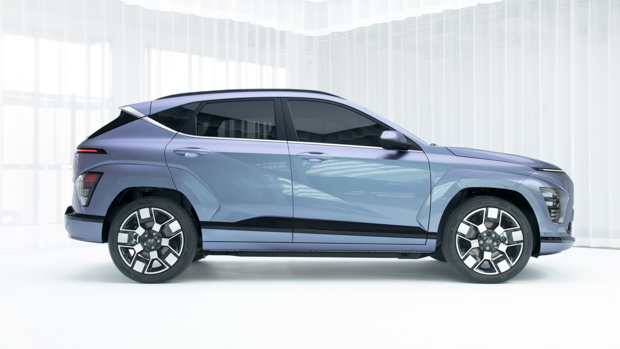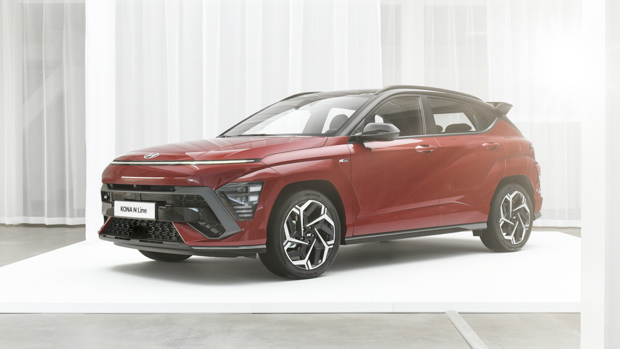-
Car Reviews
- Car News
-
Car Comparisons
Latest comparisons
- Chasing Deals
Space was left in new Kona platform for a rear motor, and Hyundai is in talks about how it could meet demand for a high-performance N version in future – as an EV
Citing incoming European emissions regulations, Hyundai Motor Company (HMC) has decided to discontinue its turbo petrol-powered Kona N sports SUV – but the model is not dead and buried.
Instead, senior Hyundai executives confirmed to Chasing Cars and other media at the reveal of the second-generation Kona in Germany in late February that the Kona N could be reinvented as an EV later this decade.
A second-generation Kona N is understood to be under study, but it could only come back as a fully-electric vehicle, according to Se Hyuk Park, the head of Hyundai’s compact vehicle project management group.
Hyundai is understood to have already developed a prototype of a potential electric Kona N with an additional rear motor added to the existing 160kW front motor available on the new-gen Kona EV model.
Speaking to Chasing Cars, Park said that Hyundai would “seek how the market moves” in terms of demand for a new-generation Kona N sports SUV.
“If we have to work on a high performance model for [the new] Kona, that will be through electrification,” Park said.
A final decision has not been made to proceed with a new-generation Kona N, but discussions are ongoing about whether to build it – and whether to retain the current Kona N’s front-wheel drive nature or switch to a high-performance AWD system.
Park was candid: “if after launching the new Kona, there are customer expectations [for a higher-performance model], we are very capable of doing a rear-wheel motor in future. We already have that solution,” he said.
“We aren’t sure [about whether] to implement rear-wheel drive [or AWD]. We’ve already thought about it, and if the market needs it, we will see.”
Space is understood to have been retained in the new Kona’s K3 platform architecture to place a future rear motor, either for a mainstream AWD variant for the Kona EV – or for a high-performance Kona N, which would also be possible.
Performance way beyond that of the outgoing petrol Kona N should be possible. That vehicle makes 206kW/392Nm from its 2.0-litre turbo four-cylinder engine with front-wheel drive and an eight-speed dual-clutch automatic transmission.
However, a hypothetical electric Kona N model could produce in excess of 300kW of power from dual electric motors, which would still retain a performance advantage for Hyundai’s incoming EV flagship – the 430kW Ioniq 5 N.
Speaking with Chasing Cars in the past, Hyundai N division executives have been sceptical about creating a high-performance EV based on a 400-volt platform, such as the K3 architecture used for the Kona.
In late 2022, reputed Hyundai N executive technical adviser Albert Biermann indicated to Chasing Cars that Hyundai was concerned that a 400-volt high-performance EV could undermine the reputation company’s incoming high-end Ioniq 5 N and Ioniq 6 N models.
“Having a clear idea of what N stands for, I would say it is not a good idea to put a 400-volt power-electric system into an N vehicle,” Biermann said.
“If in the same company you have the finest 800-volt system with silicon carbide inverters and high-speed motors, why go [400-volt] and be eaten by the pack of 400-volt guys [BMW, Mercedes, etc]?”
However, Biermann held the door open to Hyundai producing a successor to the cheap-and-cheerful i20 N which sits in Europe’s B-segment for superminis.
“In entry-level cars, B-segment [i20 N-size], this is where I can maybe see a 400-volt car, just to be affordable, as an N car. In a much smaller car, then the affordability and performance might match. But of course, you have to compromise.” Biermann said.
With Biermann is set to retire from HMC in the coming year, though, and this week’s confirmation that discussion is occurring around a dual-motor version of the Kona EV, it’s conceivable that an N-badged high-performance Hyundai on a 400-volt architecture could end up being a new Kona N given the model’s presence in the booming small SUV segment.
Latest news
About Chasing cars
Chasing Cars reviews are 100% independent.
Because we are powered by Budget Direct Insurance, we don’t receive advertising or sales revenue from car manufacturers.
We’re truly independent – giving you Australia’s best car reviews.



